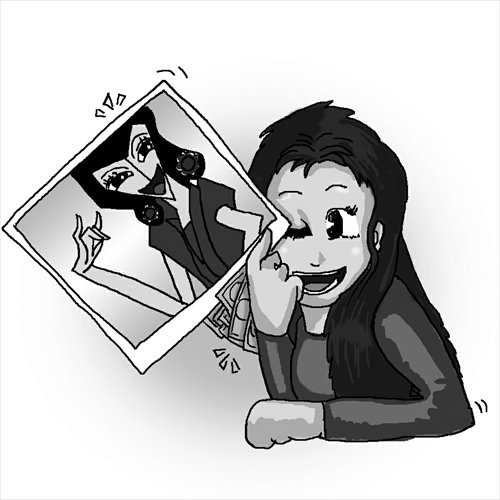Plastic surgery craze epitomizes modern China

Illustrations: Lu Ting/GT
Arguably the world's oldest existing civilization, Chinese culture boasts a depth of aesthetic understanding that few other cultures can match. Rejuvenation of China's economic potency, however, doesn't seem to embolden the confidence of Chinese regarding their own identity and indeed is becoming detrimental to their own societal values.
Contrary to the impulse of unique creativeness inherited from Western Renaissance intellect, Chinese work ethic and artistic tradition has always focused on the perfection of replication. How, then, have Western women become the aesthetic masters to their Chinese counterparts? And why has having a more European-looking face become a prerequisite to landing a decent job in Shanghai? Does "being white" signify modernity and prosperity to the Chinese?
Throughout world history, socio-economic change has always directly influenced a society's notion of "beauty." During the Tang Dynasty, considered one of the most glorious eras in Chinese history, having a round face, pale skin and small eyes was the norm for women. In the early decades of the Communist era, no make-up and maintaining a "plain" look became the new beautiful. The startling similarity in both of these uniquely different eras was that Chinese women were confident about "looking Chinese."
In post-modern Shanghai, however, the more non-Chinese a woman looks, the higher she is regarded in society. This is especially tragic as Shanghai has long been considered a trendsetter for provincial women aspiring to look as glamorous as their big-city counterparts.
This, I believe, is largely due to a dire lack of pure-Chinese pop culture and hence the lack of soft power of China within and beyond its borders. The absence of an ideal "Chinese identity" causes local youth to search abroad for their role-models. As much as it enjoys a trade surplus with the West, China is therefore deeply in debt to the United States and Europe in terms of cultural productiveness.
It is indeed saddening to see members of such a profound culture seek their role models from overseas. The globalization of the PRC that began in the 1980s has always been delineated as "modernization with Chinese characteristics." Those characteristics, unfortunately, are fading away and now considered unfashionable and unwanted by the new generation.
Today, Chinese youth devour Korean soap operas on American-made smartphones while shopping in Euro-branded luxury stores. Anything Made in China, from CCTV period dramas to Xiaomi mobiles, however utilitarian and affordable they may be, are simply "uncool" in the eyes of post-90s and millennial Chinese. Celebrities are not exempt from this unwritten rule: single-lidded eyes, dark skin and moon-shaped faces are rarely-seen traits among Chinese mainland superstars. Only those who look European ever soar to Empress Status.
Fan Bingbing, currently one of China's most famous celebrities, allegedly (she denies it) has undergone multiple reconstructive surgeries over the years to re-fashion her face. As a result, Chinese women now ask their plastic surgeons to make them "look like Fan Bingbing." A stroll through any Shanghai luxury mall will reveal dozens of Fan Bingbing look-alikes, mostly nouveau riche women trying to conceal their countryside roots.
Chinese actresses surely must be aware of how influential they are among young Mainland Chinese mainland women, so before one of them undergo their next round of aesthetic alterations, she needs to decide whether she wants to become the Empress of China or a cultural ambassador of the West.
Related Article:
Fan Bingbing a role model, but not for looks